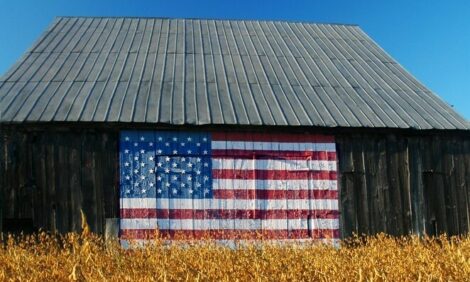



Bovine Breakthrough: Mastitis Vaccine Comes Close
UK - Researchers at the University of Nottingham have been given £2.2m to carry out a study on Bovine Mastitis - and possibly produce a vaccine in the process.The study will revolve around the most common cause of Bovine Mastitis in the UK — Streptococcus uberis (S. uberis). It is believed that if researchers can identify which parts of the bacteria enable the infection their results could lead to the production of an effective vaccine.
Bovine Mastitis is the most common infectious disease in farmed animals. Around one million cases occur each year in the UK. It is painful, occasionally life threatening, and costs the dairy industry £200m every year in lost production and treatments. Within the UK alone it has been estimated that around 12m doses of antibiotic are used annually to control and treat mastitis in cattle.
Now The University of Nottingham, with funding worth
James Leigh, Professor of Molecular Bacteriology, who has recently joined the School of Veterinary Medicine and Science, said: “We hope to uncover bacterial antigens of potential use in vaccines aimed at preventing bovine mastitis and provide a detailed understanding of how animals can fight off the disease.”
Bovine Mastitis is a bacterial infection of the udder in dairy cows. S. uberis is responsible for a significant proportion of clinical mastitis worldwide — but unlike many other bacteria that cause the disease S. uberis is also in the environment — it is found in pasture and bedding and can even colonise the cow at other body sites with no ill effect — so it is difficult to see how it can be controlled by changes to animal husbandry and milking-time hygiene.
With funding from the Biotechnology and Biological Sciences Research Council (BBSRC) the School of Veterinary Medicine and Science has established research laboratories at the Institute for Animal Health (IAH). The project is being conducted in collaboration with Dr Tracey Coffey’s Bovine Genomics group based at IAH and other groups at the Royal Veterinary College, the US Department of Agriculture in the UK and the University of Oxford.
Professor Leigh said: “We will use state-of-the-art molecular technology to determine the differences between strains of S. uberis that can and cannot cause disease. Proteins that are only present in the disease causing strains hold the key to determining which components are essential for infection. We will show which of these proteins are most likely to make an effective vaccine by producing strains of S. uberis which lack the ability to produce each of these proteins; if a strain lacking a particular protein is less able to cause disease then this protein is important for the disease process and becomes a candidate for vaccine development.”
The team also want to identify any parts of the immune response in the dairy cow which can be altered to prevent the disease — this information could subsequently be used to develop drugs that interfere with the chemical messages that lead to inflammation and therefore reduce the level of disease.
In the last few months members of the Nottingham Vet School have been involved in successfully winning a number of grants and awards to support the School’s growing portfolio of research.
Further Reading
| - | Find out more information on Bovine Mastitis by clicking here. |
TheCattleSite News Desk


